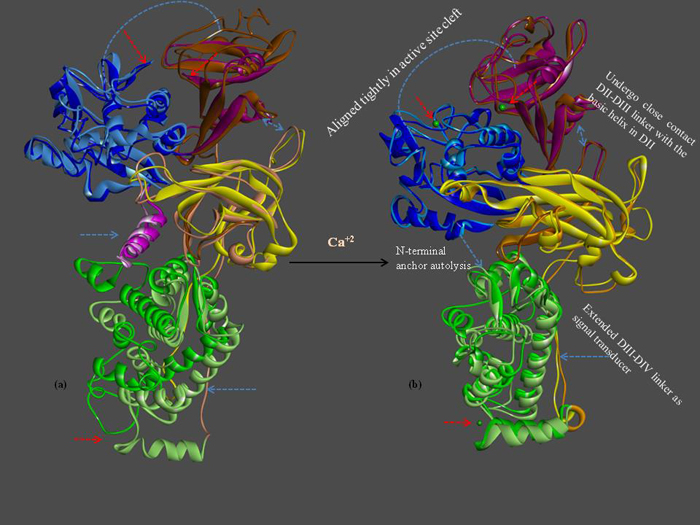-
 Korea.net's 24-hour YouTube channel
Korea.net's 24-hour YouTube channel- NEWS FOCUS
- ABOUT KOREA
- EVENTS
- RESOURCES
- GOVERNMENT
- ABOUT US
The genes that determine the tenderness of beef have been discovered. Researchers have revealed a correlation between the DNA of calpain and calpastatin, two proteins that control the softness of beef, according to the Rural Development Administration on June 8.
It is widely known that the taste of beef is related to the tenderness of the beef itself as well as to the moisture contained in the cooked meat. In addition to this, however, the taste is also determined by how active certain enzymes are in helping to digest the meat.
The research was designed to predict the structure of calpain, under the assumption that the protein structure of calpain is similar to that of an amino acid. Calpain is an enzyme that makes meat tender and helps us to digest the meat. It activates only when combined with calcium. However, researchers also found that if the concentration of calcium is too high, calpastatin, a calpain inhibitor, starts to activate and makes the meat less tender.

"We aim to understand the characteristics of the calpain enzyme and use it to conduct research into helping people enjoy eating meat," said a researcher at the National Institute of Animal Science, part of the Rural Development Administration.
The research results, "Homology Modeling Study of Bovine μ-Calpain Inhibitor-Binding Domains," were published in the International Journal of Molecular Science in May.
By Limb Jae-un
Korea.net Staff Writer
jun2@korea.kr

It is widely known that the taste of beef is related to the tenderness of the beef itself as well as to the moisture contained in the cooked meat. In addition to this, however, the taste is also determined by how active certain enzymes are in helping to digest the meat.
The research was designed to predict the structure of calpain, under the assumption that the protein structure of calpain is similar to that of an amino acid. Calpain is an enzyme that makes meat tender and helps us to digest the meat. It activates only when combined with calcium. However, researchers also found that if the concentration of calcium is too high, calpastatin, a calpain inhibitor, starts to activate and makes the meat less tender.

Changes in the structure of calpain when it is combined with calcium and activated (image courtesy of the National Institute of Animal Science)
"We aim to understand the characteristics of the calpain enzyme and use it to conduct research into helping people enjoy eating meat," said a researcher at the National Institute of Animal Science, part of the Rural Development Administration.
The research results, "Homology Modeling Study of Bovine μ-Calpain Inhibitor-Binding Domains," were published in the International Journal of Molecular Science in May.
By Limb Jae-un
Korea.net Staff Writer
jun2@korea.kr
Most popular
- First hearing-impaired K-pop act hopes for 'barrier-free world'
- 'Mad Max' director impressed by 'cinema-literate' Korean viewers
- Romanian presidential couple visits national cemetery
- 'Korean mythology is just as wonderful as Greek and Roman'
- Hit drama 'Beef' wins awards from 3 major Hollywood guilds















